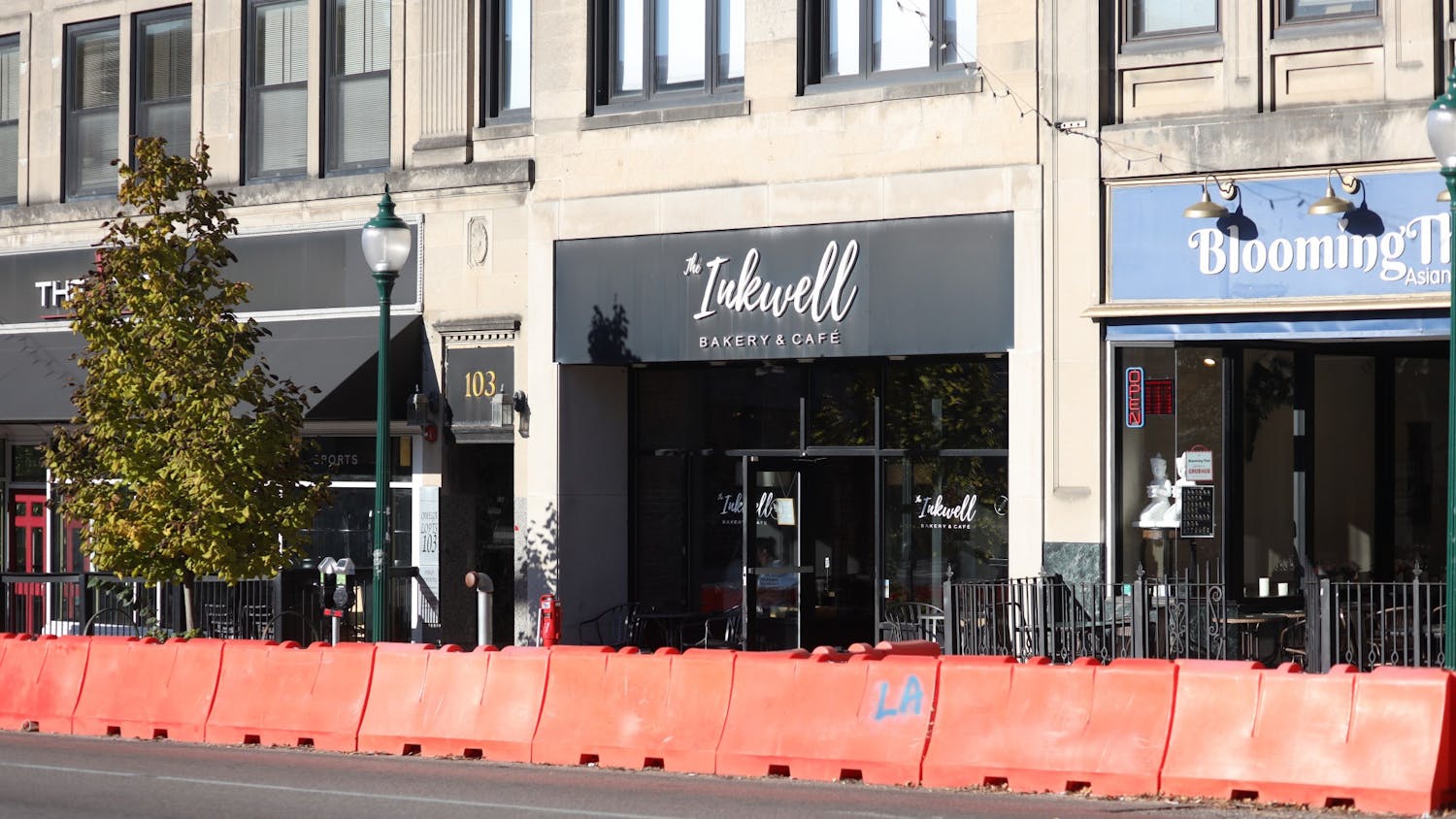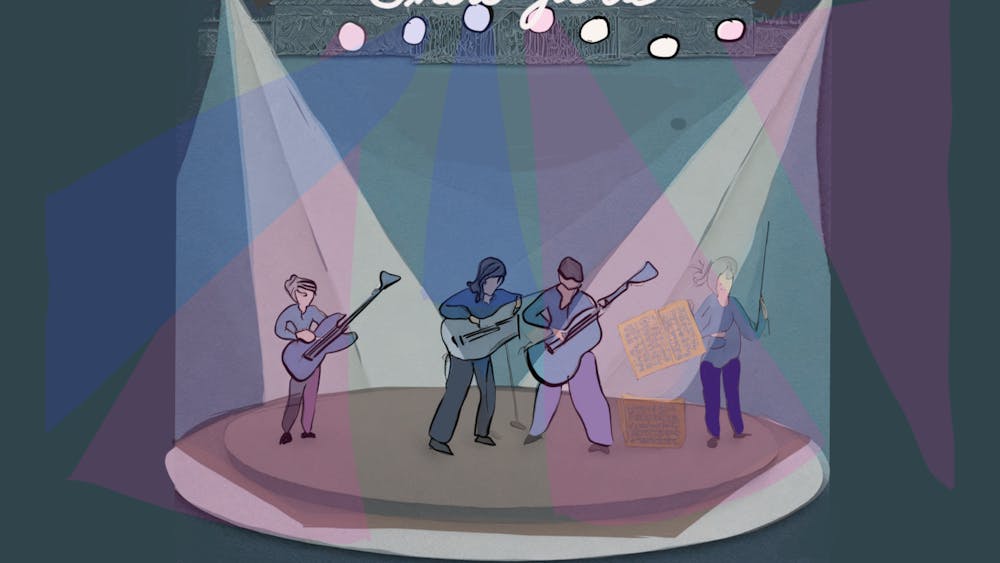The new play that opened at the Bloomington Playwrights Project this weekend, "Afterdark" by New Yorker Kara Manning, is supposed to examine the personal lives and relationships of seven city dwellers trying to make sense of their world, post-Sept. 11. It does successfully raise some important questions and offer flashes of occasional insight, but just how many questions and what they may be is not always clear. For every truth eloquently illuminated, there seems to be two other threads left untied.\nThe drama is set in New York City, December 2001, barely three months after the terrorist attacks upended the lives Manning examines. Adding to the already bitter sense of disillusionment felt by these characters, the action unfolds just days after the death of rock icon George Harrison. How we react to death and to all profound change is a central issue dealt within "Afterdark."\nJules, played with a fine amount of streetwise grit by IU senior Amanda Nesbitt, is a 16-year old cynic whose passions include stealing cars and her love for Sam, a young jazz drummer who is dying of a long illness (presumably cancer, which claimed Harrison's life as well). One of the stylish things about "Afterdark" is Manning's keen awareness of pop culture, which surfaces when Jules includes among those passions her favorite bands, Yo La Tengo and the White Stripes. These kinds of references could quickly date a play if the writer is not careful, but Manning is. They put a current, realistic edge on the story while being so unobtrusive that they're nearly invisible. Of course, it\'s also pointless to talk about dating a work based on Sept. 11.\nSam (Tim Ryder) approaches dying with the (literal) spiritual guidance of his idol, legendary jazz trumpeter Miles Davis, who in the afterlife has gained a certain mellow wisdom but apparently retained his notoriously salty demeanor. Nick Simpson, a senior music and theater major at IU, played this part skillfully with the necessary cool detachment that made him come off like a foul-mouthed, hipster Jiminy Cricket, which was brilliant. Ryder played equally well off him in his moving and sympathetic portrayal of Sam. \nMaria Dahman, in her role as Jules's mother Jessie, was entrusted with the most poetic language of the script, which was at times beautifully elegant. It worked well against her lot in life as a coffee shop owner and overworked single mother, creating the impression of unfulfilled ambition. More jarring though is Jules's estranged father, Harry, who is supposed to be believable as a Seattle food critic but whose character is far too unrefined. As Harry, Kevin Woodruff made a valiant attempt with what was given to him. \nRounding out the ensemble were two peripheral characters, Diana (Renee Reed), a DJ who acted as a kind of omniscient narrator but whose part in the drama was never made clear, and Abby (Amamda Scherle), a frustrated writer and friend of Jessie. Scherle did double duty by also playing a tourist from Omaha who visits Ground Zero, camera in hand, oblivious to the real human suffering that has taken place there. Manning makes her point loud and clear, but overdoes it in a way that makes the tourist look like a cheap cartoon. Most of the play is similarly malnourished in subtlety. Nick Simpson also doubles as Derek, Jessie's new love interest, who is as uptight and straight-laced as Harry is laissez-faire. He is a well-meaning, sympathetic character that is also, unfortunately, mostly two-dimensional. \nThe main personal interest in "Afterdark" is generated by the two relationships that center around Jules: those with her deadbeat father and her doomed lover. That such a young girl should have to cope with the fear of terrorism as well as the overwhelming realities of teenage life is a central issue of the play; as well as the media spectacle made of death and how a father tries to reconnect with a past that now rejects him. \nWith so many lines of thought being woven simultaneously, they're bound to get tangled, and they do. The coherence of the play suffers from the grand scale of Manning's vision, and as a result the impact of Sept. 11 is lessened. The interpersonal issues the characters face could, for the most part, have happened as readily before 2001 as after, but on the other hand, this also shows the play's universal potential. The parallel of Sam's death with George Harrison's is wonderfully conceived, as the audience is at once shown the public spectacle following Harrison's death and the personal tragedy of Sam's lengthy bout with terminal illness. It is in questioning our shallow understanding of grief that "Afterdark" leaves the most powerful and poignant impression.
'Afterdark' thought provoking and complex
Get stories like this in your inbox
Subscribe





